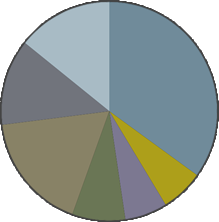The Master Public Health (MPH) in Global Epidemiology (GLEPI) is a joint program offered by the Department of Epidemiology and the Hubert Department of Global Health. The GLEPI MSPH degree provides global context for epidemiologic training.
MPH in Global Epidemiology
Skills
Identify, collect, manage, analyze, interpret, and report population-based data to drive control and prevention in global settings.
Admission Requirements
As part of the SOPHAS application, all applicants will need to submit the following materials when applying to Rollins:
- Personal statement including your interest in the field of Public Health and Epidemiology as well as your interest in Rollins School of Public Health. Please address your career goals. Global Epidemiology program applicants should additionally summarize relevant public health experience (working with underserved populations, volunteer or mission experience, Peace Corps or AmeriCorps service).
- College transcripts
- The submission of GRE scores are optional for all candidates applying to MPH and MSPH programs for fall 2022 admission.
- Two letters of recommendation
- Resume
Detailed information about each of these admission requirements can be found in Admissions.
Stats for recently admitted students:
Average GPA 3.6
Quantitative GRE (25%, 75%) 155, 161
Verbal GRE (25%, 75%)
156, 163
Application Requirements
| Degree | Coursework Req | GPA | |
|---|---|---|---|
|
GLEPI |
One college math and one college science |
Minimum preferred GPA of 3.0 |
Applicants to the MPH program in global epidemiology need to meet the admission criteria for both the Epidemiology (EPI) and Global Health (GH) Departments. GLEPI students have an aptitude for the methodological rigor of epidemiology, a population-oriented approach to public health, and a demonstrated concern for underserved populations.
It is recommended that students have:
- Prior experience relevant to global health
MPH Degree Requirements
42 credit hours: Includes a Thesis and an Applied Practice Experience.
This degree program is also offered as a dual degree and in part-time format. For additional information please email sphepidept@emory.edu.
Integrative Learning Experiences
The global epidemiology applied practice experience and thesis must involve underserved populations or low-resource settings locally, domestically, or internationally.
Applied Practice Experience (APE)
An Applied Practice Experience (APE) is a unique opportunity for graduate students to integrate and apply practical skills and training learned through course work and prior experiences in a professional public health environment. All RSPH graduate students are required to complete an APE of at least 200 work hours in a public health agency, institution, or community under the supervision of site supervisor and the guidance of the Department. Although there are no credits associated with the APE requirement, the completion of the requirement is noted on the student’s transcript.
Integrative Learning Experience - Thesis
Examples of past thesis titles include:
Tuberculosis in Fulton County, Georgia, 2008-2014: Risk markers for isoniazid mono-resistance and a pilot study of novel spatial methods.
Maternal socioeconomic status and the odds of failing to receive preconception counseling: an epidemiologic study using 2009-2011 PRAMS data
Variability in case and mortality between WHO/MOH and HealthMap curate news reports during the West Africa Ebola outbreak
To view theses, click here.
Catalog & Schedules
What is the difference between an MPH and an MSPH in GLEPI?
The MPH degree is a professional degree that requires 42 hours of coursework, a thesis, and an applied practice experience.
The MSPH degree is a professional degree tailored to students with strong quantitative skills seeking to specialize in epidemiologic research and methods. It requires 48 hours of coursework, a thesis, and an applied practice experience.


